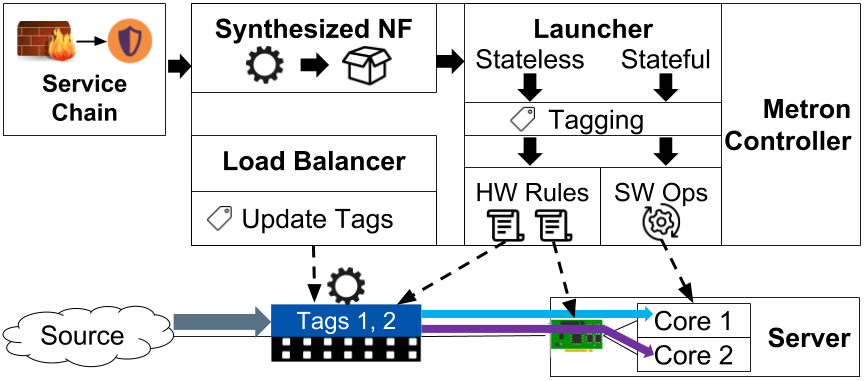The emerging 100-Gbps deployments will soon challenge the packet processing limits of commodity hardware that is being used for Network Functions Virtualization (NFV). As an illustration, the available time to process a 64-byte packet at 100 Gbps is only 5 nanoseconds. However, existing NFV platforms unnecessarily expend several nanoseconds exchanging packets between CPU cores to realize chained network functions. Consequently, these systems cannot meet the tight processing requirements of the emerging high speed (i.e, 100 Gbps or beyond) networks. To enable ultra high performance service chain deployments we introduce Metron; an NFV platform that operates at the true speed of the underlying hardware. First, Metron exploits the available programmable network hardware to perform early traffic classification and tagging. Then, Metron uses these tags to accurately dispatch classified packets to the correct CPU core of a server for further stateful processing, eliminating inter-core transfers. With commodity hardware assistance, Metron deeply inspects traffic at 40 Gbps and realizes stateful network functions at the speed of a 100 GbE network card on a single server. Metron achieves up to (i) 4.7x lower latency, (ii) 7.8x higher throughput, and (iii) 6.5x better efficiency than the state of the art. Thus, Metron’s contributions are crucial for realizing the future high speed NFV deployments. Metron is joint work among KTH Royal Institute of Technology, RISE SICS, and University of Liege. Georgios Katsikas presented the paper at the USENIX NSDI conference in Seattle on April 9, 2018 (slides are here, and the video of the talk is available by clicking below or at this YouTube link:

